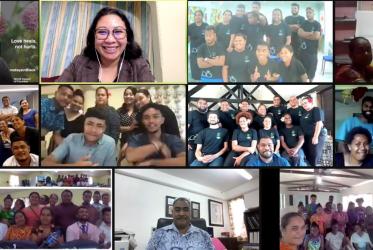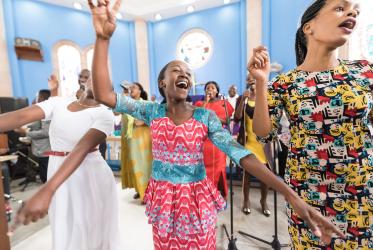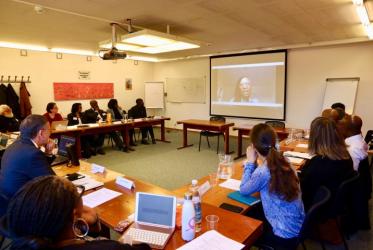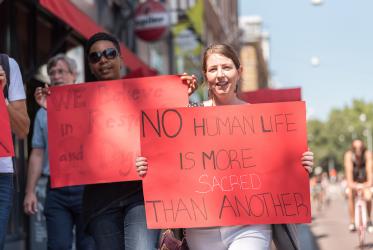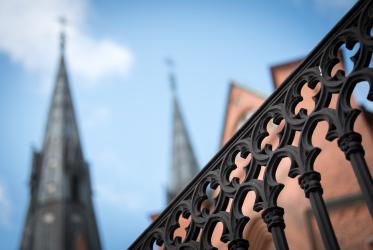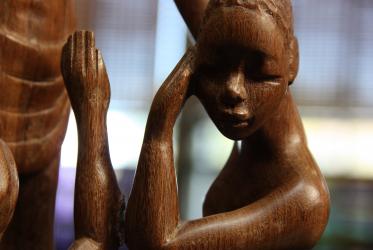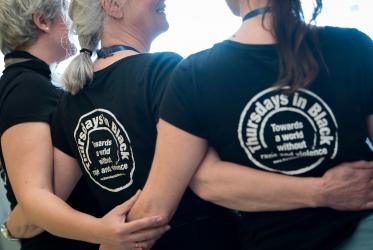Displaying 1 - 20 of 43
Churches in southern Africa stand against violence, xenophobia
10 October 2019
UN day on violence victims stresses religious tolerance
22 August 2019
A passionate Korean feminist and ecumenist
21 August 2019
WCC leads exploration on racial justice
16 April 2019
WCC Executive Committee envisions future for one ecumenical movement
08 November 2018
WCC executive committee tackles public issues
07 November 2018
WCC moderator, general secretary address Executive Committee
02 November 2018
WCC congratulates 2018 Nobel Peace Prize laureates
05 October 2018
WCC warns of growing risk of atrocities in Cameroon
02 August 2018
An advocate for family values, called by God
26 March 2018
WCC encourages participation in day of prayer for South Sudan, DRC
16 February 2018

